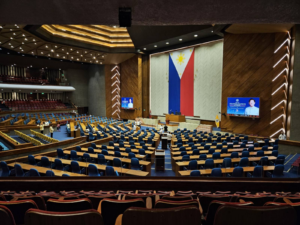
MANILA — Inflation accelerated to its fastest pace in 14 years in December, with the national government missing its annual target for the second straight year amid a supply-demand imbalance that has stoked painfully high price growth.
Inflation, as measured by the consumer price index, quickened to 8.1% year-on-year in December, the Philippine Statistics Authority reported Thursday. Data showed this was the fastest reading since November 2008.
For the entire 2022, inflation averaged 5.8%, way above the Bangko Sentral ng Pilipinas’ 2-4% target for this year. This means BSP Governor Felipe Medalla would have to explain to President Ferdinand Marcos Jr., who took office in June last year, why the inflation target was not met.
At the start of its term, the Marcos Jr. administration projected inflation would settle between 4.5-5.5% this year. But supply chain issues, expensive fuel prices, and a weak peso caused more problems than the government had thought they would. Economic managers later revised their annual inflation forecast to 5.8% in their year-end briefing.
Core inflation, computed without volatile items such as fuel and food, rose to 6.9% year-on-year in December.
Food prices were largely responsible for the uptick in December, peak spending season as Filipinos welcomed the holidays. National statisticians saw increases in the prices of vegetables (32.4%), rice (3.4%), and fruits and nuts (7.6%).
The BSP, which aggressively hiked interest rates this year to temper resurgent demand and bring it in line with limited supply, projected inflation would peak in December. Likewise, the BSP expects inflation to slow down beginning in 2023.
Domini Velasquez, chief economist at China Banking Corp., said that while inflation likely peaked in December, “we are not out of the woods yet”.
“In 2023, we expect inflation to breach the BSP’s target yet again, possibly higher than 5.0%. Key domestic risks are higher electricity and water tariffs, continued higher prices for food, and calls for wage and transport fare increases,” Velasquez said.
“On the international front, oil prices will likely not fall as initially expected as China’s reopening will drive up demand for the commodity,” she added.















